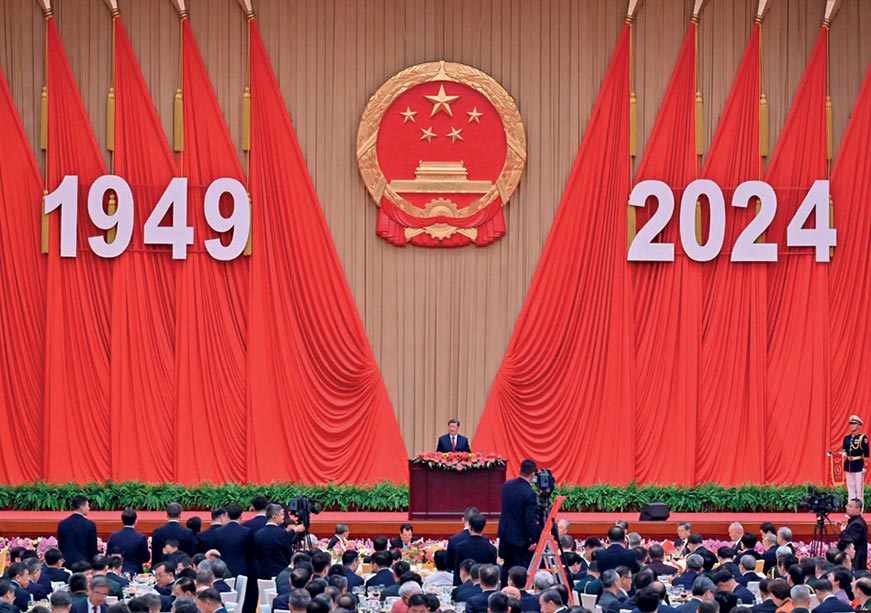Xi Jinping's leadership in China has been marked by a continuous struggle to consolidate power, maintain control, and navigate the challenges posed by both domestic and international pressures. As the Chinese Communist Party (CCP) faces increasing scrutiny and evolving geopolitical dynamics, Xi's approach underscores the complexities of governance in an era of uncertainty. This blog explores the key themes surrounding Xi's leadership and the implications for China's future.
The Quest for Stability and Control
Since taking office, Xi has prioritised the consolidation of power within the CCP and the centralisation of authority. His vision of the "Chinese Dream" aims to rejuvenate the nation while reinforcing the party's control over all aspects of life. This quest for stability often manifests through strict measures, such as crackdowns on dissent and increased surveillance, as the government seeks to maintain social order amid growing public discontent.
The COVID-19 pandemic exacerbated existing tensions within China, prompting a range of economic and social challenges. Xi's government has had to respond to public frustration over issues like censorship, human rights abuses, and economic inequality. While Xi has attempted to strengthen his grip on power, these measures can sometimes lead to unintended consequences, including increased dissent and potential unrest. Balancing control with the need for social stability remains a constant struggle for the CCP under Xi's leadership.
International Pressures and Geopolitical Dynamics
As Xi navigates domestic challenges, he also faces significant international pressures. China's assertive foreign policy has led to tensions with various countries, particularly the United States. The ongoing trade war, military posturing in the South China Sea, and issues surrounding Taiwan have contributed to an increasingly fraught geopolitical landscape. Xi's ambition to position China as a global superpower has raised concerns among other nations, leading to calls for a united front against Chinese aggression.
This international scrutiny forces Xi to adapt his strategies, often resulting in a more aggressive stance on the global stage. The ongoing rivalry with the US not only affects China’s international relations but also influences domestic narratives, as Xi seeks to rally nationalist sentiment in the face of perceived foreign threats. However, the challenge lies in balancing assertiveness with diplomatic engagement, as China aims to reshape its image while advancing its interests.
The Future of Xi's Leadership
Xi Jinping's tenure is characterised by a series of ongoing struggles, both at home and abroad. As he strives to consolidate power and navigate an increasingly complex international landscape, the ramifications of his policies will shape China's trajectory for years to come. The interplay between maintaining control and addressing pressing social and economic issues poses a formidable challenge for Xi and the CCP.
Conclusion
Xi Jinping's permanent struggle underscores the complexities of governing China in a rapidly changing world. Gain more insights into Xi's leadership and challenges facing China, on this link. Stay informed about the evolving dynamics of Chinese politics under Xi Jinping's rule.





Comments